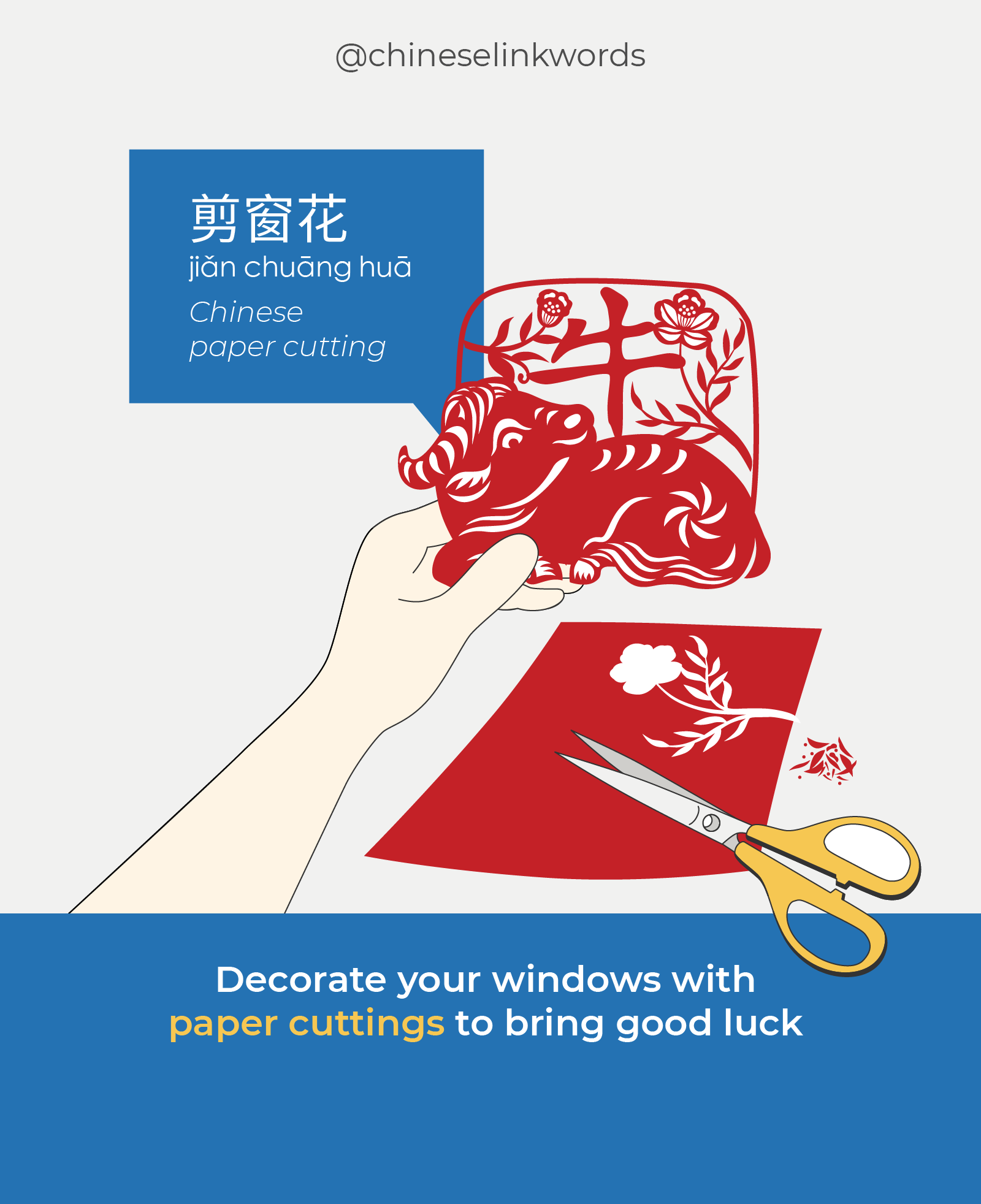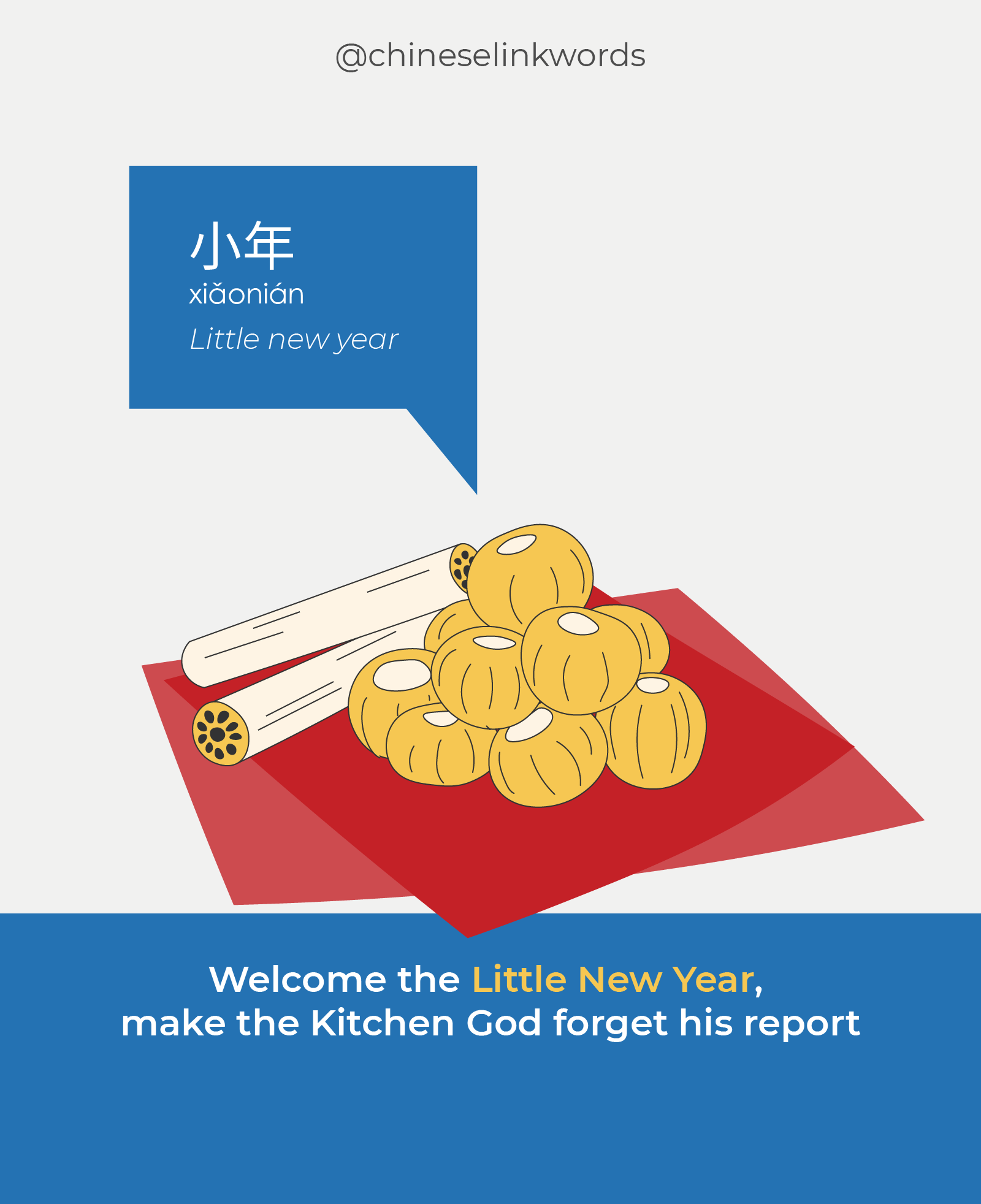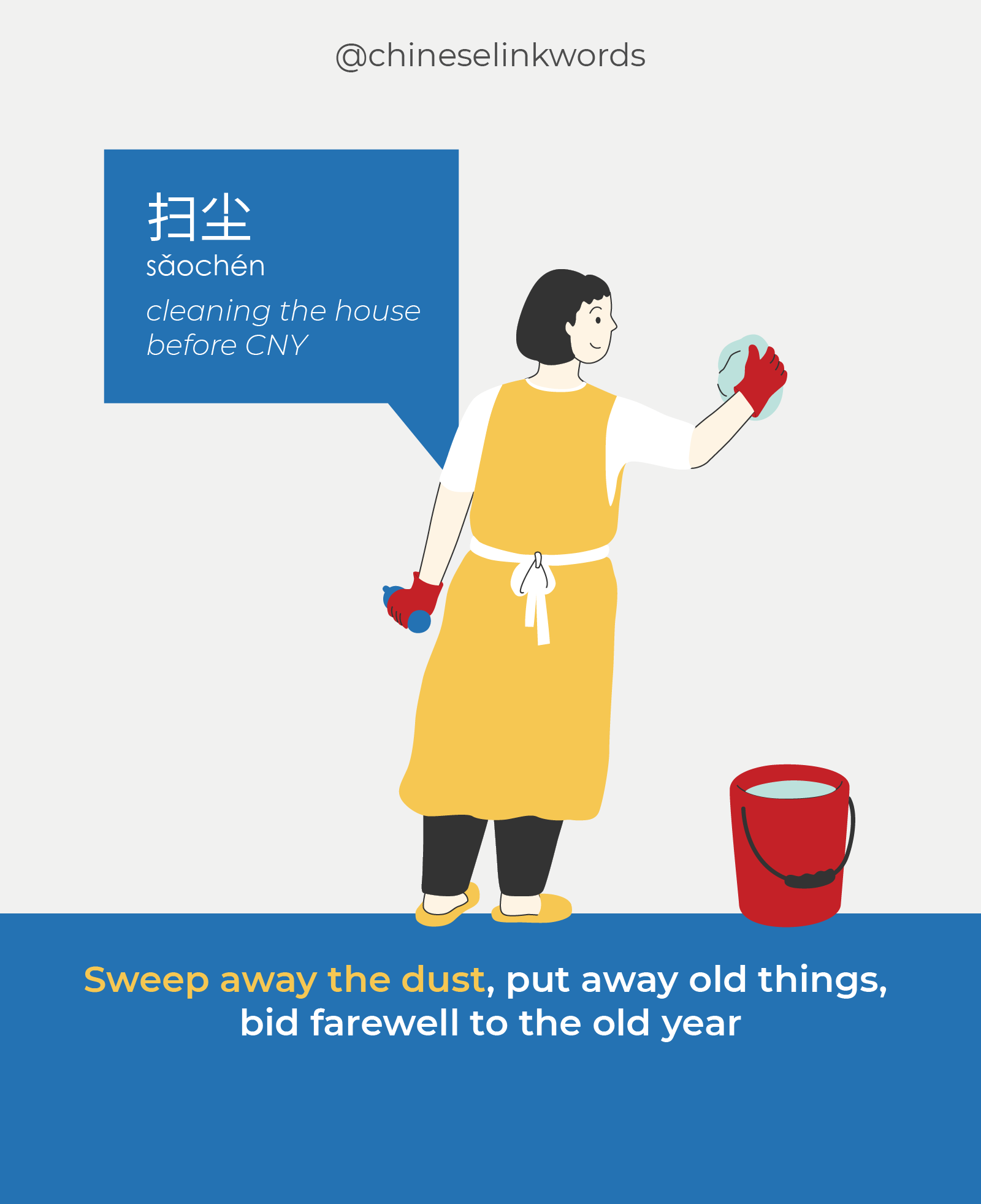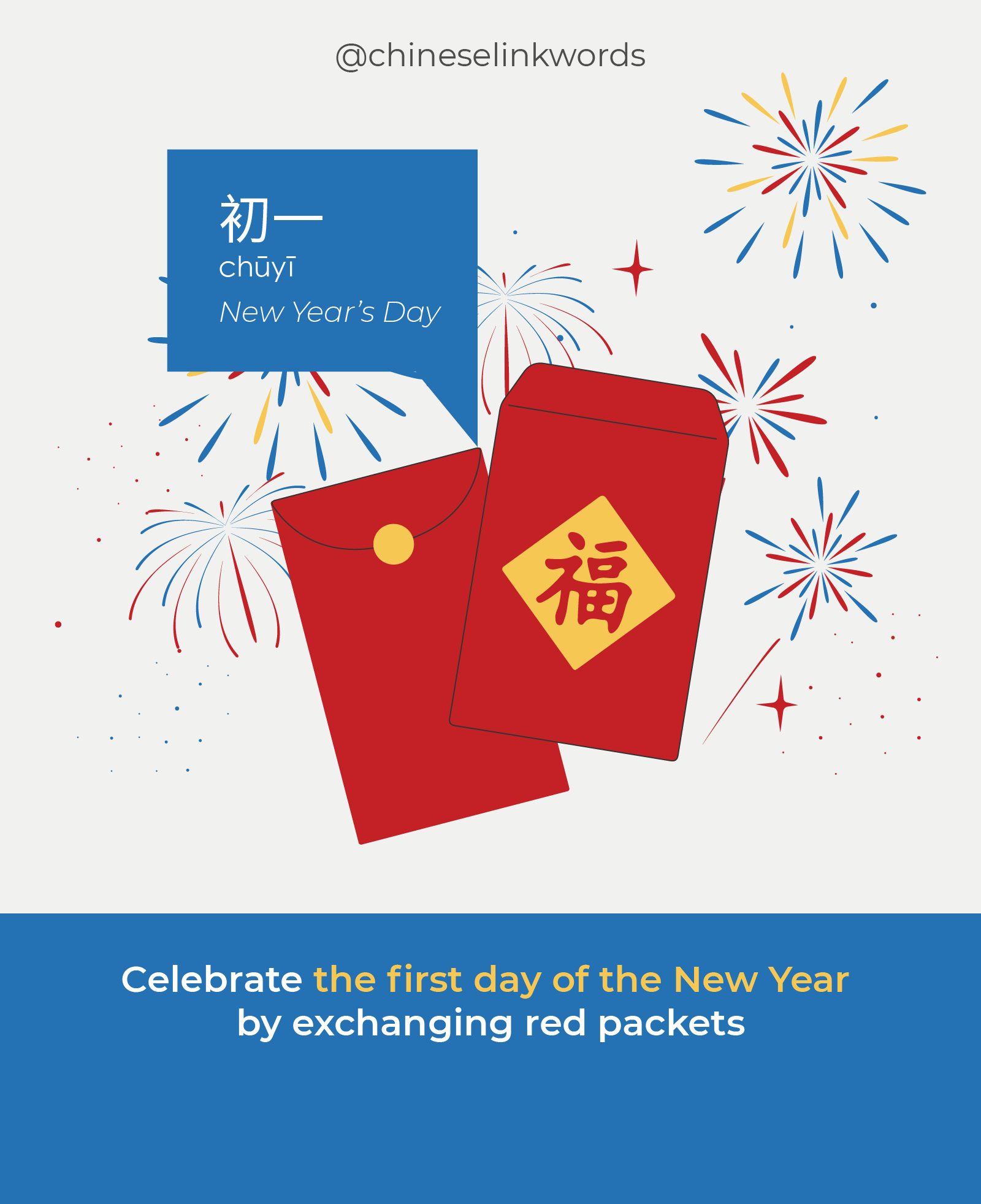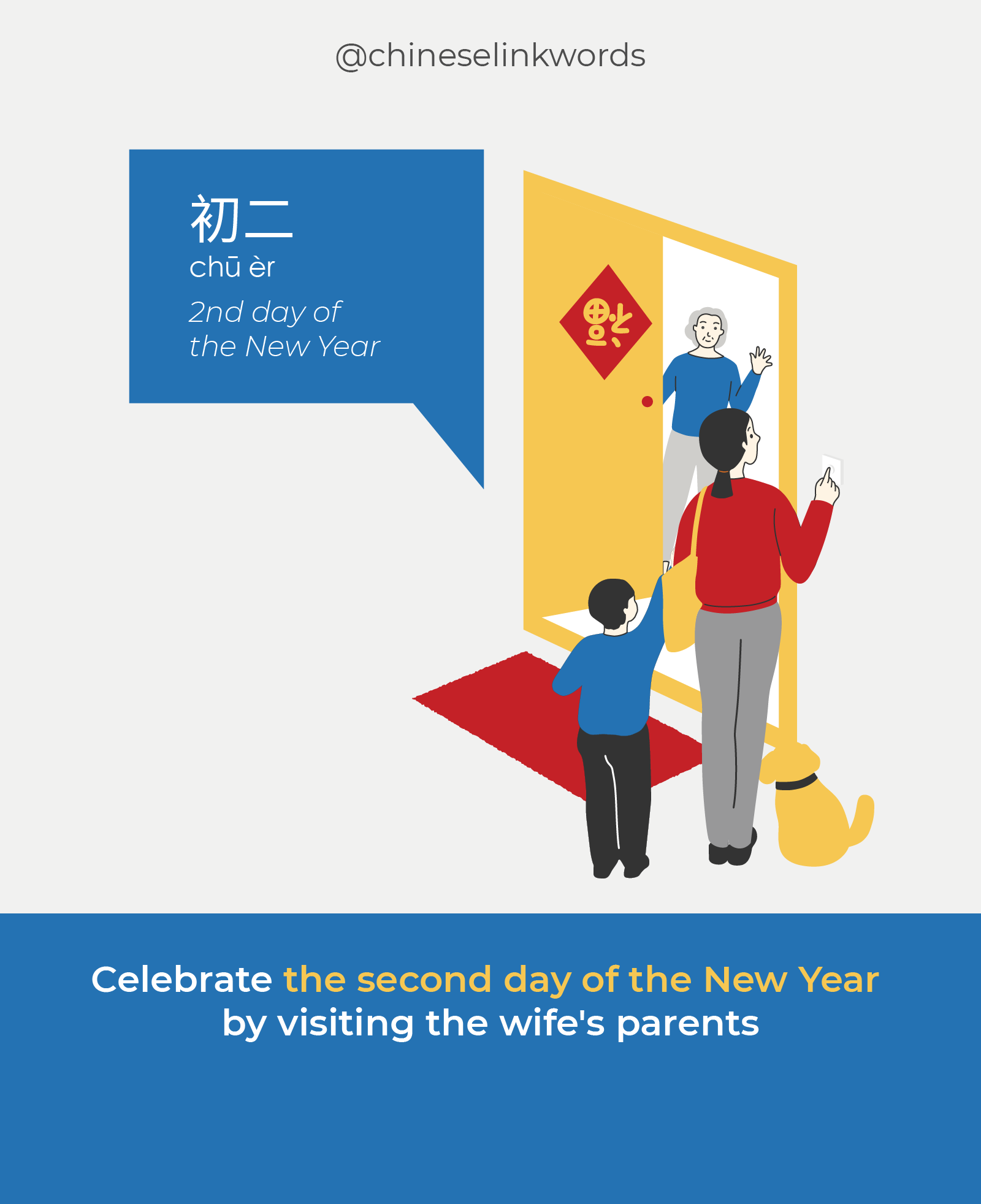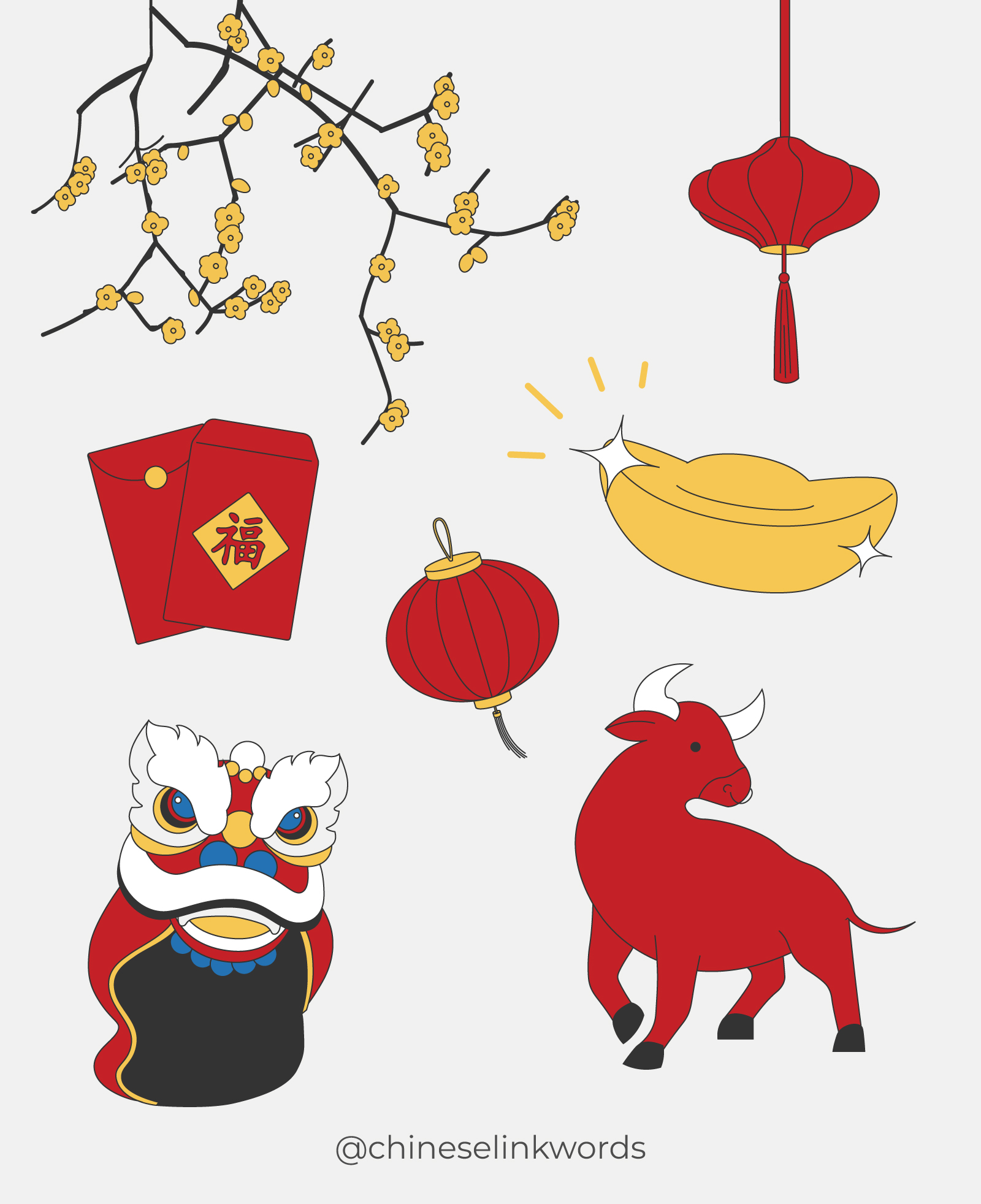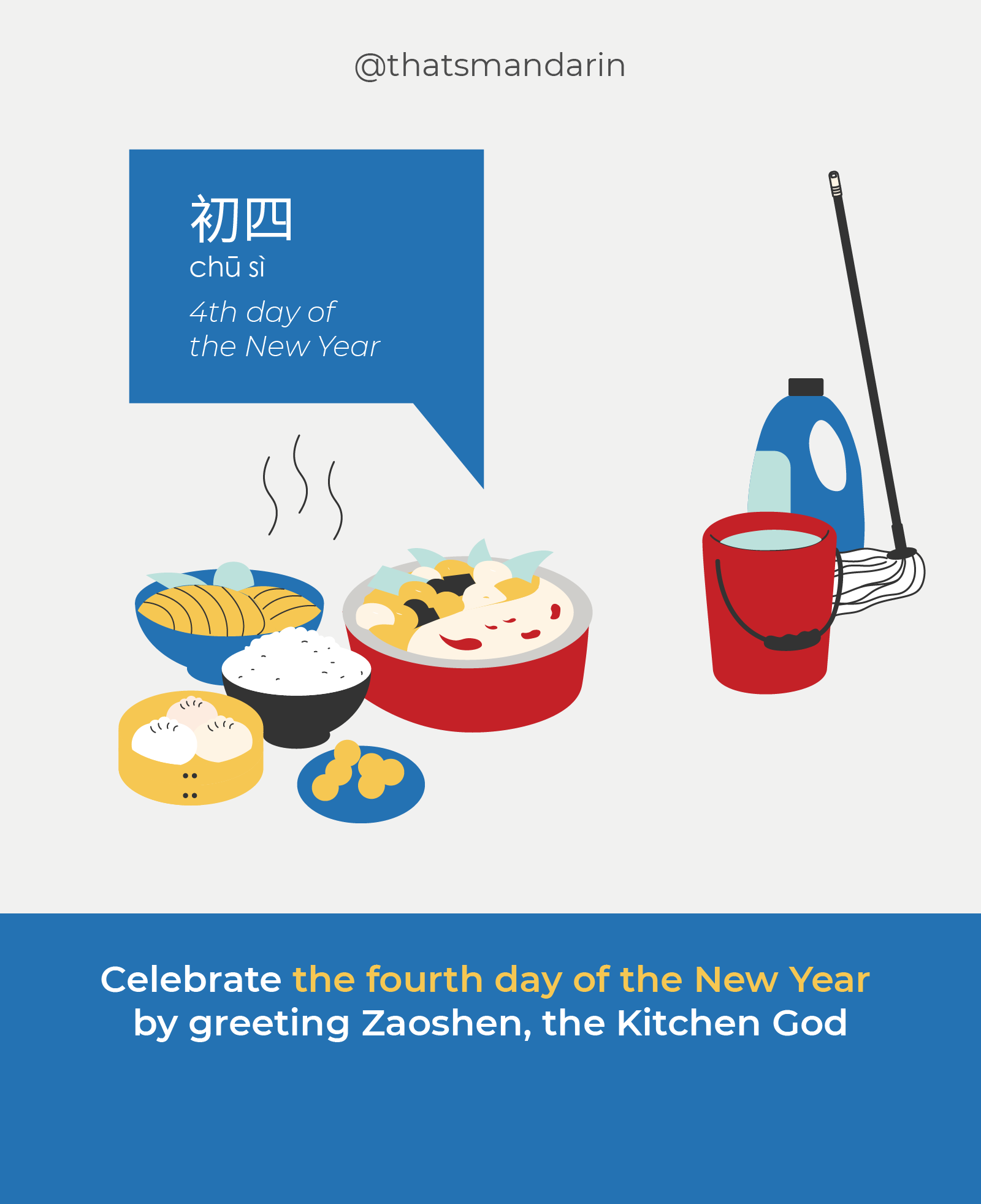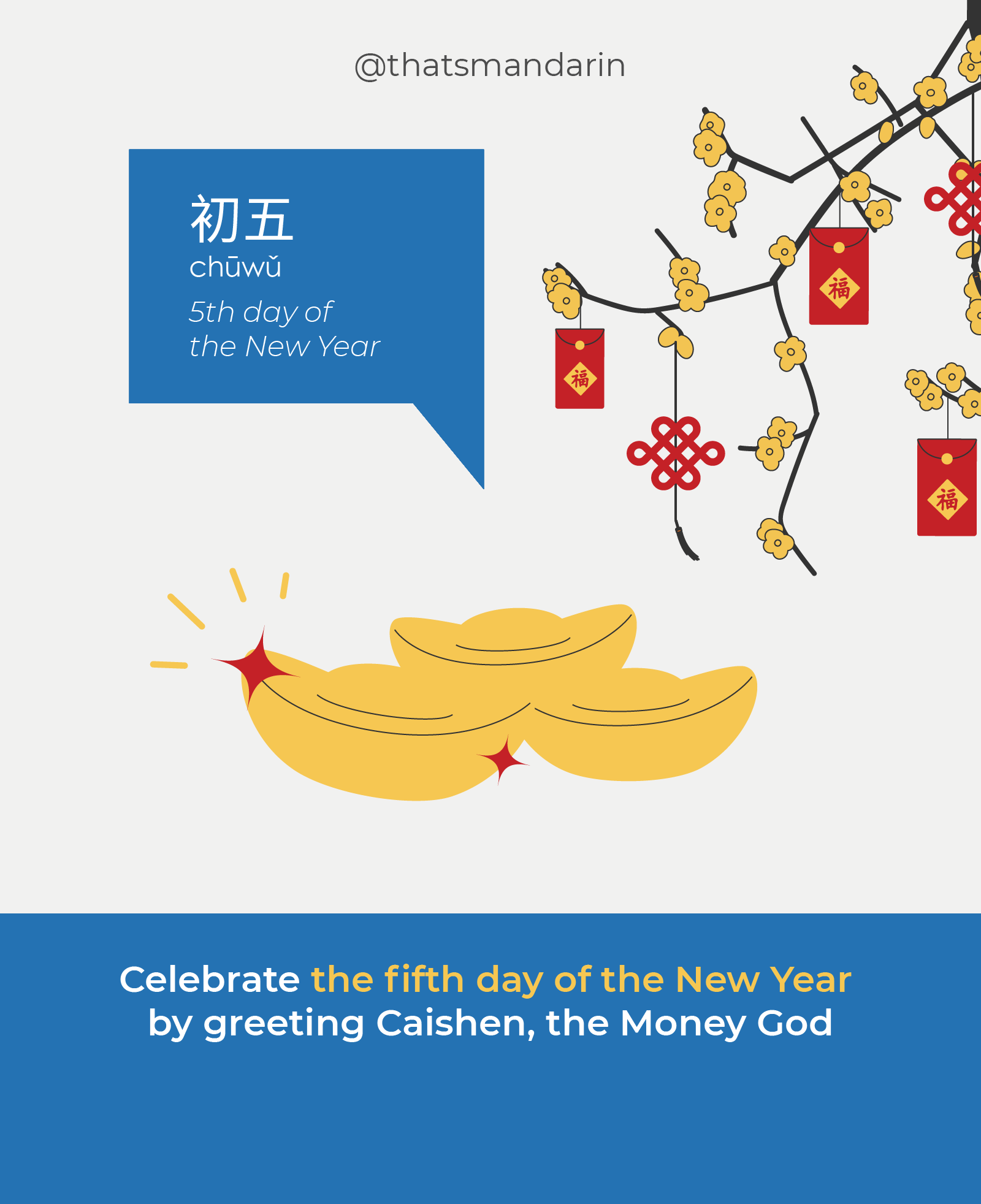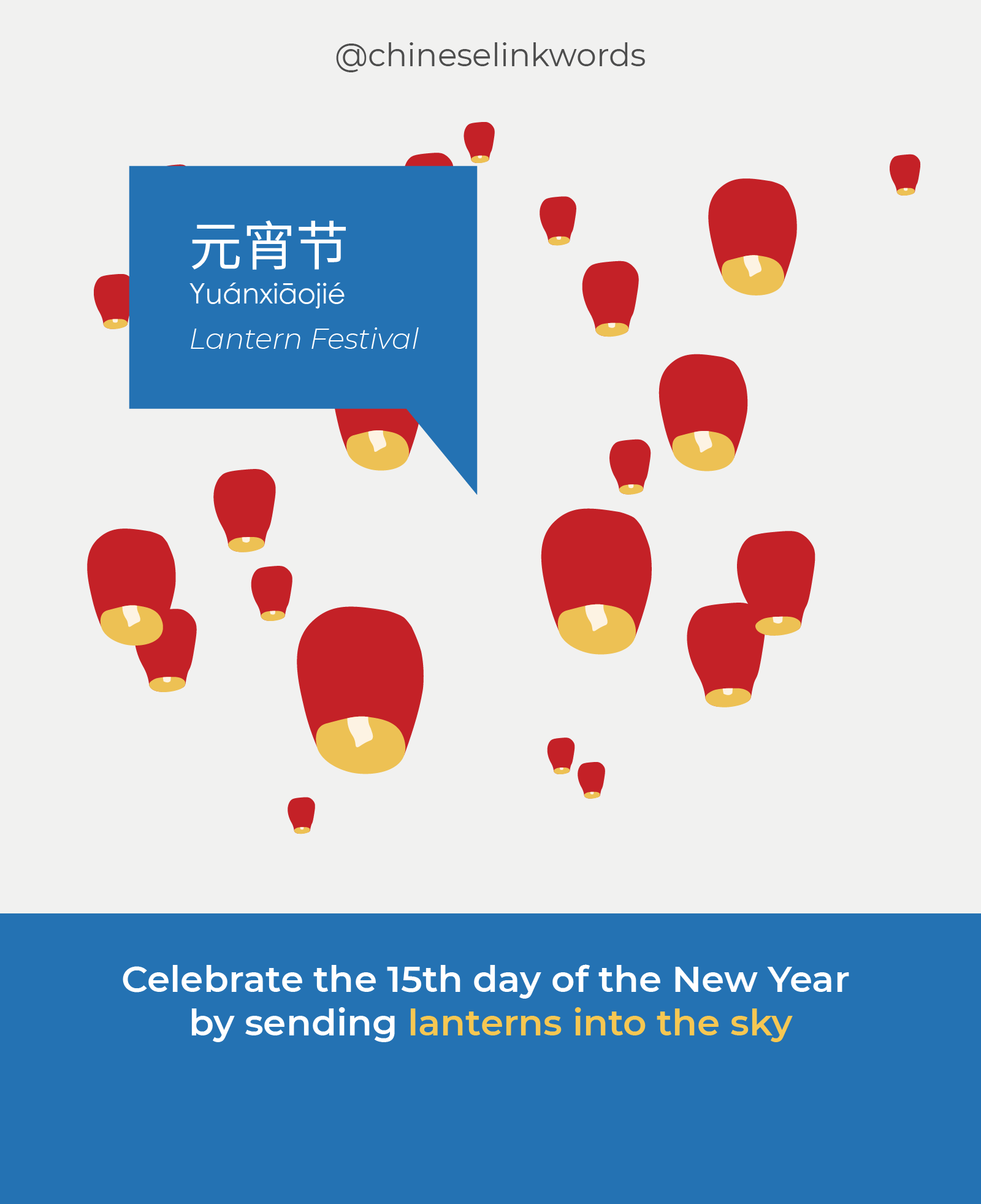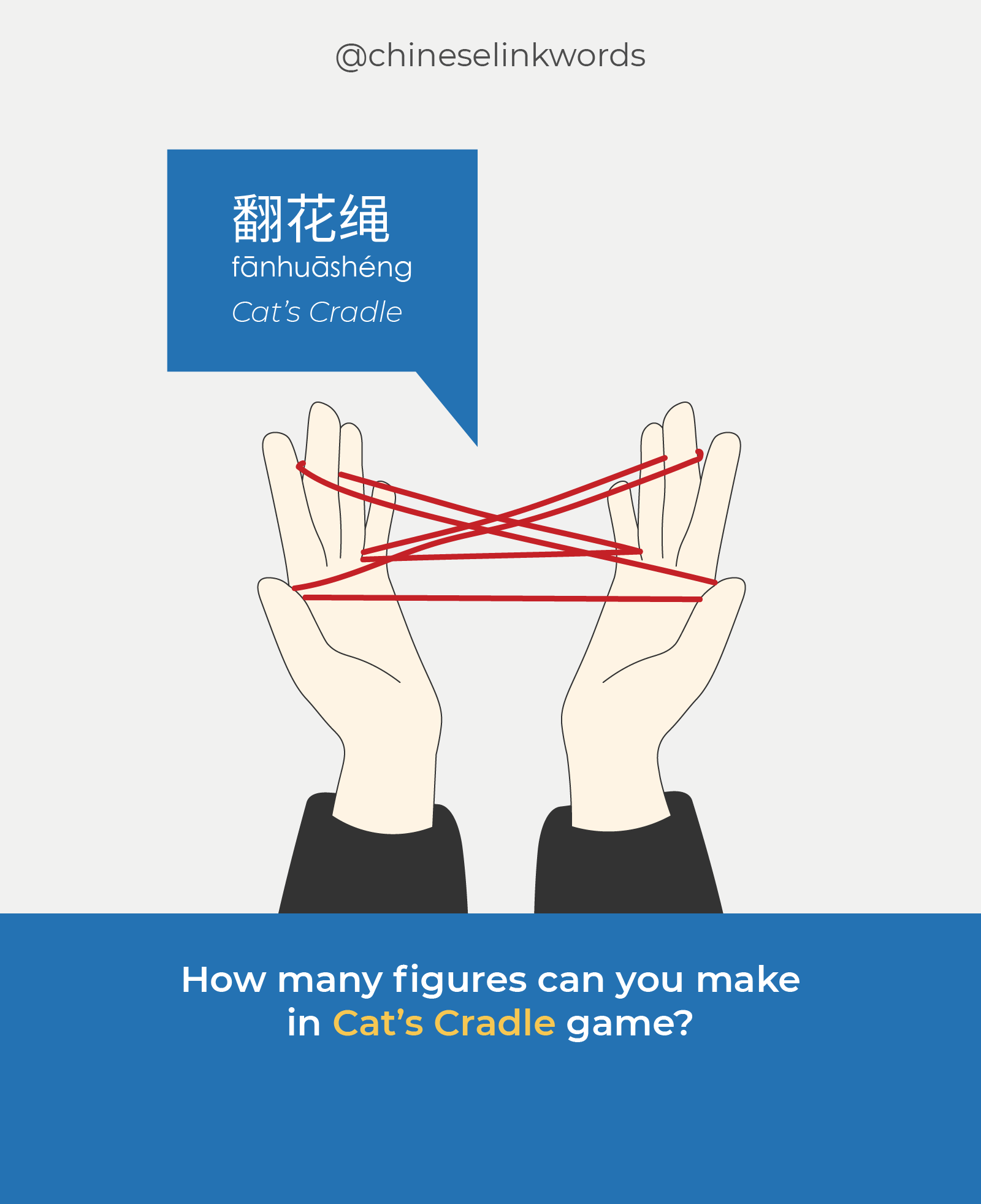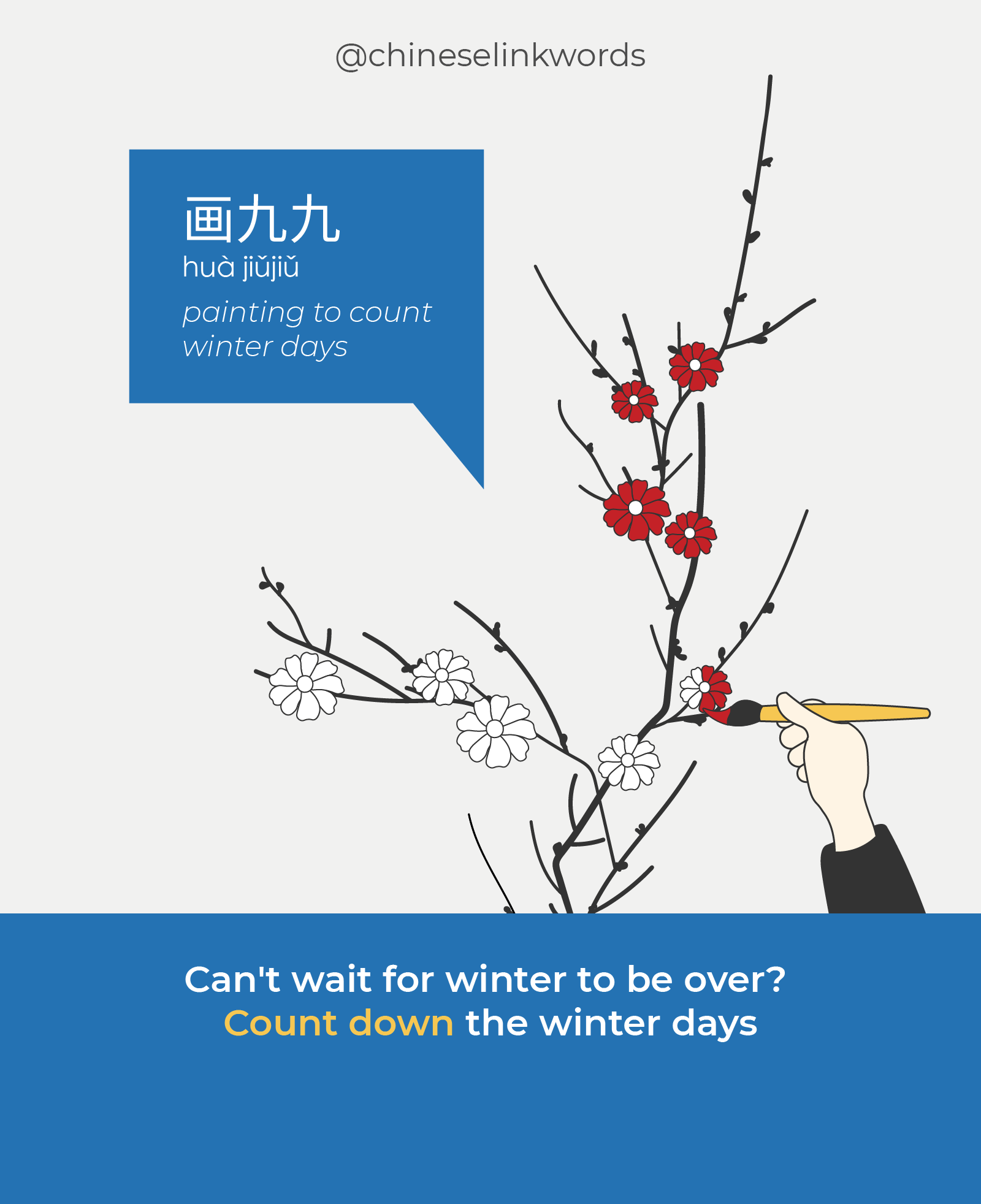Chinese New Year 2025: Celebrating Top Spring Festival Traditions
Before, During & After the Spring FestivalLunar New Year is just around the corner, and the year 2025 will be the Year of the Snake! Discover the most common Chinese New Year traditions celebrated before, during, and after the Spring Festival in this guide.
As we approach Chinese New Year 2025, it’s the perfect time to learn about the top Spring Festival traditions, from decorating your home with red lanterns to giving red envelopes and enjoying delicious foods. This guide covers everything you need to know about the most cherished Chinese New Year traditions to make your Spring Festival celebrations memorable.
QUICK LINKS
1. Chinese New Year Traditions Before the Spring Festival
2. Chinese New Year Traditions During the Spring Festival
3. Other Popular Traditions
1. Chinese New Year Traditions Before the Spring Festival
9 Days Before CNY
January 20, 2025
Making Paper-Cuts 剪窗花 | Chinese New Year Traditions
Let’s begin with a beautiful Chinese New Year tradition — the art of paper cutting. Paper-cuts are often used to decorate doors and windows, so they are sometimes referred to as “window flowers” (窗花, chuānghuā).
These Chinese New Year decorations symbolize luck and happiness ✨
The verb “to cut” in Chinese is 剪 (jiǎn), so the activity is called:
剪窗花 (jiǎn chuānghuā) • to make papercuts ✂️
If you make your own papercut design, you can glue it to the exterior of your window, so the light from the inside can shine through the negative space of the cutout.
You can choose to make a character paper cut, or a symmetrical pattern. In the case of symmetrical patterns, the cutouts are usually in an even number series: 2, 4, 24, etc.
The most popular Chinese New Year paper-cut characters are:
福 (fú) • luck
囍 (xǐ) • double happiness
春 (chūn) • spring
财 (cái) • wealth
It’s best to use red paper 🔴, as the red color symbolizes festivities and happiness, key elements of a joyful Chinese New Year celebration.
7-8 Days Before CNY
January 21-22, 2025
“Little” Chinese New Year 小年| Chinese New Year Traditions
This day is called 小年 (Xiǎonián) – the Little New Year! It marks the beginning of Chinese New Year preparations. Starting from this day, things officially get festive 🎆
Xiǎonián doesn’t have a fixed date, and people in different parts of China have different customs: people in the south celebrate it on the 23rd day of the 12th lunar month, and in the north – on the 24th day.
Now, Xiǎonián is all about worshiping the Kitchen God. He also has different names in Chinese: 灶神 (zàoshén), 灶王爷 (zàowángyè), etc. The Kitchen God lives in the household all year long and collects information about the family’s “good” and “bad” deeds by storing them into two jars: the “good” jar (善罐 shànguàn), and the “bad” jar (恶罐 èguàn). And today, he’s supposed to go “upstairs” to the Jade Emperor (玉帝 Yùdì) and make an annual report!
And guess what? People don’t want the Kitchen God to do it. So they came up with various ways to stop him!
Another way is by getting him drunk, making him forget that he wanted to make this report (打小报告 dǎ xiǎobàogào) in the first place.
And finally, one more way is to throw away (or even burn) the picture of the Kitchen God that was hanging on the kitchen wall all year. This way, he won’t be able to get to the Jade Emperor. A new picture can be placed on the wall on New Year’s Day.
6 Days Before CNY
January 23, 2025
Cleaning the House 扫尘 | Chinese New Year traditions
With less than a week left until Chinese New Year, this day is special. It’s called 扫尘日 (Sǎochén rì) – “Sweeping-Dust-Day”!
Starting from this day until New Year’s Eve, it’s the right time to clean your house thoroughly: sweep the dust, mop the floors, get rid of any spider webs 🕸️ in remote corners, wash your clothes, curtains, etc. 🧹
But it’s not only about ‘physical’ cleaning. You should also try to get rid of all the excessive and old things that you’ve accumulated during the year.
Old clothes? Donate or throw them away 👋
Useless home appliances? Same👋
No space on your computer? Delete the old files 🦾
By getting rid of old things, you will make room for the new energy in the new year ✨
旧的不去,新的不来
Jiù de bù qù, xīn de bù lái
(If) the old things don’t go, the new things won’t come
Note: If you are busy today with work or studies, cleaning tomorrow is fine too! You can continue cleaning all the way until New Year’s Day.
Be careful though and DO NOT clean during the first two days of the Chinese New Year 2025 (next Friday & Saturday), to avoid “sweeping away” good luck 💨
4 Days Before CNY
January 25, 2025
Doing the New Year Shopping 办年货 | Chinese New Year Traditions
Buying new things before Chinese New Year 2025 is another popular Chinese New Year tradition 2025. It’s not just about taking advantage of CNY sales; it’s about buying new things to treat your family and start the year in abundance!
So what’s exactly 年货 (niánhuò)?
Literally, it can be translated as “special New Year purchases”.
But in practice, 年货 includes everything you can think of:
😋 吃的 chī de (things to eat),
🧹 用的 yòng de (things to use),
👗 穿的 chuān de (clothes to wear),
🧤 戴的 dài de (accessories to wear),
🚂 耍的 shuǎ de (toys to play with),
🪔 供的 gòng de (offerings to ancestors),
🥜 干的 gān de (dry snacks),
🐟 鲜的 xiān de (fresh food),
🥩 生的 shēng de (raw food),
🍲 熟的 shú de (cooked food),
etc, etc!
These days, life is much easier. There’s no need to go to the markets, as most of the New Year shopping in 2025 can be done online. It’s also easy to buy things for parents or relatives far away in their hometowns! The most popular items are always food and snacks for family reunion dinner (团圆饭 tuányuánfàn), new year decorations (新春装饰 xīnchūn zhuāngshì), new clothes (新衣服 xīn yīfu), and gifts for relatives (走亲戚用的礼品 zǒu qīnqi yòng de lǐpǐn).
You might be thinking – what a waste! Only a few days ago, it was all about throwing things away, and now we’re supposed to buy new. But this tradition actually goes back to when food and clothes weren’t so readily available. For ordinary people (老百姓 lǎobǎixìng), the Spring Festival was once a once-in-a-year chance to enjoy a delicious feast and buy new clothes.
3 Days Before CNY
January 26, 2025
Going to a Bathhouse 洗福禄 | Chinese New Year Traditions
With only 3 days left before Chinese New Year, everyone’s houses are already clean, the new clothes are ready — so it’s time to take good care of the body. And what’s better than having a good bath, preferably in a bathhouse?
洗福禄 (xǐ fúlù) literally means “to wash good fortune,” and it refers to welcoming in the New Year by “cleaning” yourself from bad luck, misfortune, and disease. It’s also important because bathing and hair-washing are not recommended on the first day of the Chinese New Year!
It might not be easy to find a bath in modern day & age (so many people have showers only), but it’s a great excuse to visit a traditional bathhouse 🛁
And on this day, a trending hashtag on Weibo is usually:
你“#洗福禄#”了吗?
Nǐ xǐ fúlù le ma?
2 Days Before CNY
January 27, 2025
Making Spring Festival Couplets 春联儿 | Chinese New Year Traditions
Only 2 days left till Chinese New Year! It’s time to decorate your house and create a festive atmosphere, mainly with the color red 🧧♦️
There are many different items you could use, such as lanterns or paper cuts, but let’s look at the most interesting type of decoration — Spring Festival couplets, or 春联 (chūnliánr).
Traditionally, 春联 (chūnliánr) are two lines of vertical text written in black ink on red paper and pasted on both sides of the door, plus one horizontal line at the top. The text includes New Year wishes or things you’d like to have more of in the New Year: wealth, luck, success, and peace ✨
But these days, there are lots of “modern versions” of 春联 (chūnliánr) available to buy online. You can choose fun text instead of traditional poems, for example: “I’d like to stay slim in the New Year — and be able to order a large-size milk tea without regret.” It’s also not just about doors anymore. You can paste 春联 (chūnliánr) on your computer, phone, fridge – anywhere you like!
What’s one thing you’d like to have more of in 2025?
What would your Spring Festival couplets be about?
1 Day Before CNY
January 28, 2025
除夕 (Chúxī) | Chinese New Year Traditions
Chinese New Year’s Eve
This day marks the first day of the official Chinese New Year holidays in China. Many shops close completely or stay open for half a day, allowing people to rush home to their families and prepare the 年夜饭 (nián yè fàn) – the family reunion dinner. It is believed to be the most important meal of the year ✨
So tonight is the night when people usually share dinner with their loved ones, watch the CCTV New Year Gala (春晚, chūn wǎn) on TV, and stay up late to meet the new year (守岁 shǒu suì). It’s common to cook a LOT of food, including chicken and fish for good luck, and eat it all the way until Day 4! (According to some traditions, it’s not allowed to cook on the first few days of Chinese New Year.)
But this year, not everyone was able to travel home to their hometowns for the big reunion dinner. Many people stayed in the cities they work in. And many had to cook the reunion dinner on their own for the first time – away from their parents and grandparents who usually do it! So many recipes and dish lists have been traveling around WeChat this week 😄
Is there a similar tradition in your country, to have a family dinner together? Which holiday is it for?
2. Chinese New Traditions During the Spring Festival
Day 1 of the New Year
初一 (Chūyī)
January 29, 2025
Chinese New Year’s Day
The Year of the Snake is here!
😴 If the previous night was full of celebration, on New Year’s Day, there won’t be much going on. People usually get up late and spend time with family.
🧧 And on this day, it’s quite common to exchange 红包 (hóngbāo) – red packets! They can be “physical” red envelopes with cash, but nowadays, most of the 红包 are exchanged digitally on WeChat.
👀 It’s also the time to put up a new picture of the Kitchen God on the kitchen wall, so he can stay with the family for the whole year again ✨
Have you ever exchanged 红包 (hóngbāo) on WeChat? Are you good at snatching them quickly?
Day 2 of the New Year
初二 (Chū’èr)
January 30, 2025
Visiting the Wife’s Family | Chinese New Year Traditions
According to the tradition, the 2nd day of the New Year is the time to 回娘家 (huí niángjiā) – visit the family on the wife’s side.
This is when the gifts bought earlier start coming in handy! Along with 红包 (hóngbāo), or red envelopes 🧧.
As for the taboos and superstitions – cleaning the house, sweeping the dust, and throwing away the garbage today is believed to be NOT very auspicious. It can wait until tomorrow. (Although in modern times, not everyone follows this rule – keeping the house clean is important too! You will see many people “preparing” the garbage by putting it outside their door, but not taking it to the trash can yet.)
Is there a special day of the year in your culture when a wife, with her husband and children, should visit her parents?
Day 3 of the New Year
初三 (Chūsān)
JANUARY 31, 2025
Staying at Home | Chinese New Year Traditions
On the 3rd day of the New Year, people traditionally stay at home and don’t go out. This day is often dedicated to rest, family time
Day 4 of the New Year
初四 (Chūsì)
FEBRUARY 01, 2025
Greeting the Kitchen God
And on the 4th day, the tradition continues – but with a new twist. Because it’s the day when the Kitchen God (灶神) comes back!
And what’s the proper way to welcome the Kitchen God? By tricking him a little, of course!
This time, it’s done by having a meal put together of all the food left since the CNY feast (过年以来的剩饭剩菜 guònián yǐlái de shèngfàn shèngcài). First of all, it’s practical: this way the family can finally finish all the food. And secondly, once the Kitchen God arrives and sees a family having leftovers, he will feel sorry and think “Oh look at this poor family surviving on leftovers! Let me make this year a little better for them.”
And he’ll help make the new year more prosperous.
Today is also a good time to clean, sweep the dust, and get rid of the garbage collected over the days. In some regions it’s called 扔穷 (rēng qióng) – “throwing away-poverty”. 👋
And in general, today is considered to be the day when 诸神 (zhū shén) -“all sorts of gods and spirits” – come back, so people prepare offerings and greet them.
And while today’s tradition of greeting the Kitchen God might be fading away with time, the tradition of greeting the next deity is still alive and well 👇
Day 5 of the New Year
初五 (Chūwǔ)
FEBRUARY 02, 2025
Greeting the God of Wealth
This day never goes unnoticed on Chinese social media.
If you have WeChat and follow your Chinese friends’ moments, chances you will see posts today that say:
大年初五,迎财神!
Dànián chūwǔ, yíng Cáishén!
It’s the 5th day of the New Year, (time to) meet the God of Wealth!
Indeed, nowadays the tradition of welcoming in (迎接 yíngjiē) the God of Wealth (财神 Cáishén) is still very popular. Who doesn’t want to be prosperous, and let their businesses thrive in the new year?
So the 5th day of the New Year got the name 财神节 Cáishénjiē (“the day of the God of Wealth”), and as it happens to be his birthday, many people will post welcoming messages to him online, and make fruit offerings offline🍎🍊
大年初五,迎财神 💰💵💶💷💴
Day 6 of the New Year
初六 (Chūliù)
FEBRUARY 03, 2025

Businesses Are Back to Work
On this day, most shops and essential business re-open.
Day 7 of the New Year
初七 (Chūqī)
FEBRUARY 04, 2025

Everyone Is Back to Work
On this day, everyone goes back to work! People come back from vacation. Life slowly gets back to normal.
Day 11 of the New Year
初十一 (Chūshíyī)
February 12, 2025
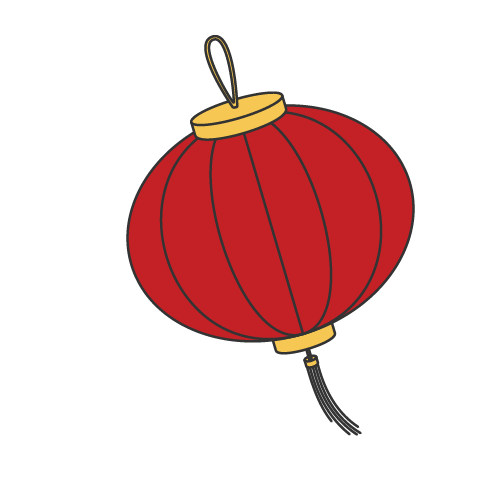
Making Lanterns
On this day, people make lanterns (扎彩灯 dǎ cǎidēng) and get ready to celebrate the Lantern Festival.
Day 13 of the New Year
初十三 (Chū shísān)
February 15, 2025
Making Sticky Rice Balls
On this day, people make sticky rice balls. In the south they are known as tangyuan (汤圆 tāngyuán), and in the north — as yuanxiao (元宵 yuánxiāo).
Day 15 of the New Year
初十五 (Chūshíwǔ)
February 17, 2025
Lantern Festival | 元宵节 (Yuánxiāo Jié)
This day marks the last day of the Chinese New year celebrations. It’s the first full moon in the New Year!
On this day, people traditionally eat sweet dumplings called 元宵 (yuánxiāo, “first night”) in the north and 汤圆 (tāngyuán, “round balls in soup”) in the south. They resemble the shape of the full moon, and symbolize reunion ✨
It’s also a lovely tradition to send sky lanterns 孔明灯 (kǒngmíngdēng) into the sky. Although nowadays in big cities it’s a bit dangerous – it’s flying “fire”, after all! – so you can always choose to send a digital 孔明灯 (kǒngmíngdēng) instead 🏮
3. Other Popular Traditions
Cat’s Cradle game | 翻花绳
If you grew up in the 70s, 80s or 90s, you might still remember the childhood string game called Cat’s Cradle. But did you know that it originated in China, and that it’s one of the oldest games in human history?
Its Chinese name is 翻花绳 (fān huāshéng), or simply 翻绳 (fān shéng) – literally “turning-rope”. It’s always been a very popular traditional game in China, especially among children.
The game is played with an elastic string (绳子 shéngzi), and the task is to create (挑翻 tiāofān) various string figures & patterns (花样 huāyàng).
You can play on your own, but the game is much more fun when it’s played by two players! In this case, the players take turns, and at each turn, alter the figure made by the other player.
The game usually begins with a simple figure such as “double cross” (双十字 shuāng shízi) , and continues as players create new figures such as “field” (田地 tiándì), “noodles” (面条 miàntiáo), “bull’s eye” (牛眼 niúyán), “water well” (水井 shuǐjǐng), etc.
The game ends when one of the players makes a mistake and creates a dead-end figure.
Counting Winter Days | 画九九
If you come from a country where winters are cold and windy, you probably know this feeling: you want the winter days to pass as soon as possible. Chinese people are the same, especially in the North!
So in the past, the Chinese counted winter days in groups of 9 beginning with the Winter Solstice, 冬至 (Dōngzhì). They believed there were 9 sets of 9 days (81 days) before spring came.
During this time, the average temperature in Beijing is usually around -5C, and in northeast China, it could plunge to as low as -30C! ❄️
No wonder people have always wanted this time to pass as quickly as possible. So they came up with a nice way to get through the winter: by playing games, doing fun activities, and drawing a… special painting to count down the winter days!
In Chinese, these kind of paintings are called 九九消寒图 (jiǔjiǔ xiāohán tú), literally “nine-nine-eliminate-cold-picture.”
This painting can take different forms. For example, it can be 9 characters, with 9 strokes each, that together read like a sentence or a poem (the “fancy”, scholarly way to count winter days). Or it can be the 9 flowers of a plum tree, with 9 petals each. We like the plum tree!
By coloring one element every day starting from the Winter Solstice, the picture can be finished in 81 days, just in time to welcome in the spring 🌿
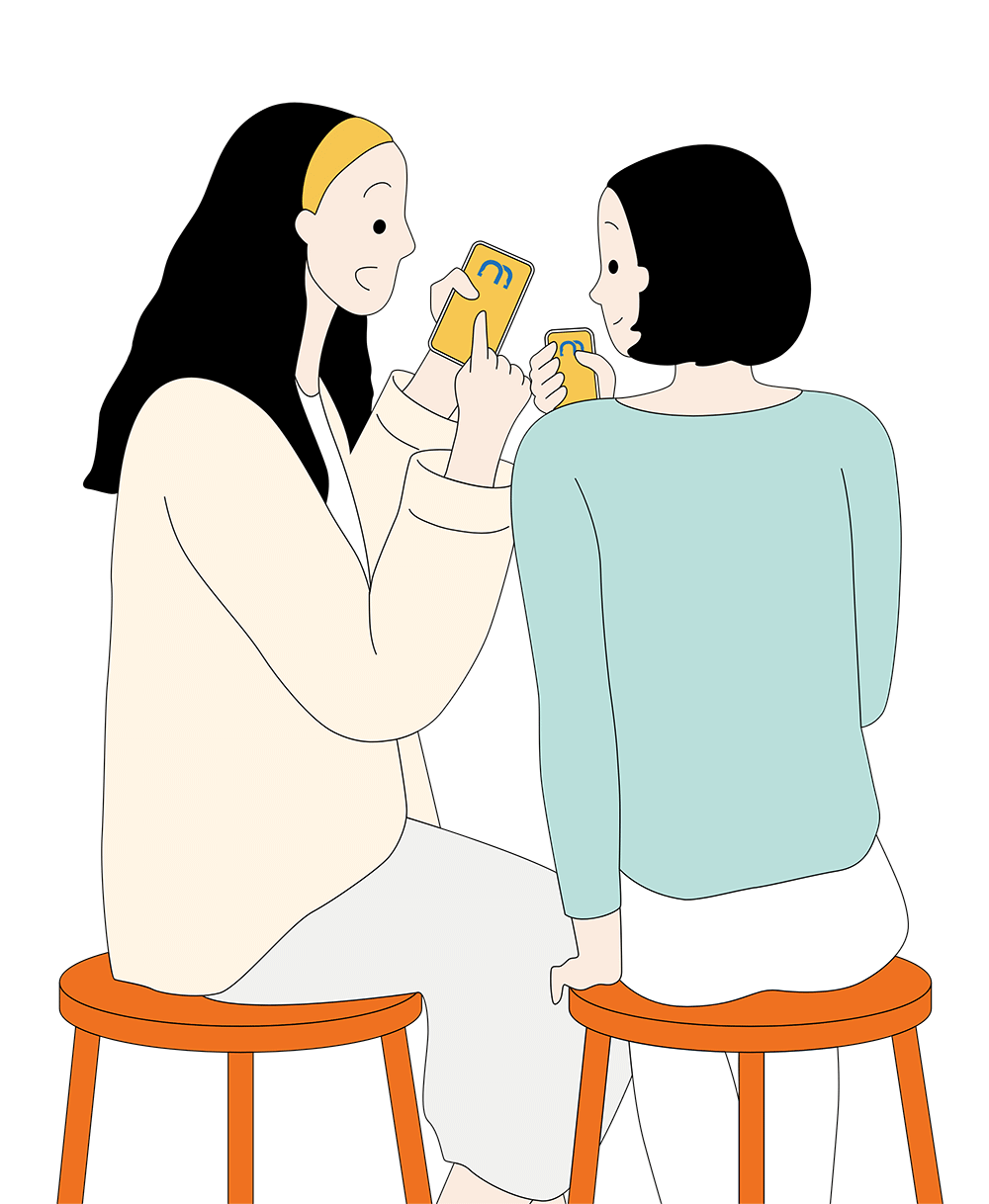
Study Chinese with us
with Online & Offline Programs
Study Chinese with us
with Online and Offline programs

